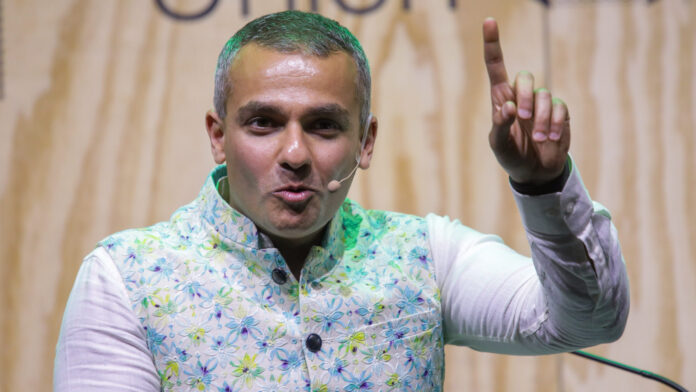Mining’s best response is to acknowledge that its history and its practice cannot be explained away, said Dhawan. “The people who believe that mining is the least responsible industry on earth and the people who believe that mining is the most responsible industry on earth are both correct,” he said. “I reject the conventional wisdom in our industry that says we just need to tell our story better.
“I believe it’s possible to show people through hard evidence, through data, through examples, that when you do it right mining is a transformationally good industry. We have to live with this uncomfortable reality of both views being true at the same time.”
Western bias
Since joining it in 2021, Dhawan has made enormous strides in lifting the ICMM’s profile. The council has made a landmark commitment to sustainable development targets and in August last year signed a collaborative undertaking to reduce pollution by acid rock drainage. It also issued an updated policy statement on indigenous peoples that was one of several ICMM principles adopted by the UN secretary-general’s panel on critical energy transition minerals in September.
The UN has embraced the ICMM’s global industry standard on tailings management and another standard on not mining in world heritage sites.
But there’s still a way to go. It has a heavyweight membership — BHP, Glencore and Anglo American are ICMM members — but the council represents only 36% of world mining. China Minmetals Corp is one of its few non-Western members.
Stringent transparency rules are at odds with state-controlled production. One condition of membership is that companies aspiring to join the ICMM have to disclose every government contract signed since 2022. Members must also commit not to mine in world heritage sites.
The people who believe that mining is the least responsible industry on earth and the people who believe that mining is the most responsible industry on earth are both correct
Dhawan said: “These are hard-edged, clear commitments. If you do not make them you are not welcome in our group.”
Dhawan, formerly KPMG’s head of geopolitics and sustainability in South Africa, came to the ICMM after three years at consultancy Eurasia Group. He is also an associate at the Center for Strategic & International Studies and a fellow and faculty member at the Asian Forum on Global Governance. He advises the Columbia Center on Sustainable Investment, Concordia and Resolve.
But no laurel can prepare Dhawan for managing executive egos. He described dealing with these as “a constant piece of work”. A 75% vote is required for a resolution to pass, and even then the dissenting minority can stand apart without losing membership in terms of the council’s conform-or-explain rule.
“At a time when the UN and the EU are stuck in paralysis because they don’t have a circuit-breaker mechanism like this, we are showing it is still possible to move ahead even if not everyone is on board.”
A version of this article first appeared in the Financial Mail.










